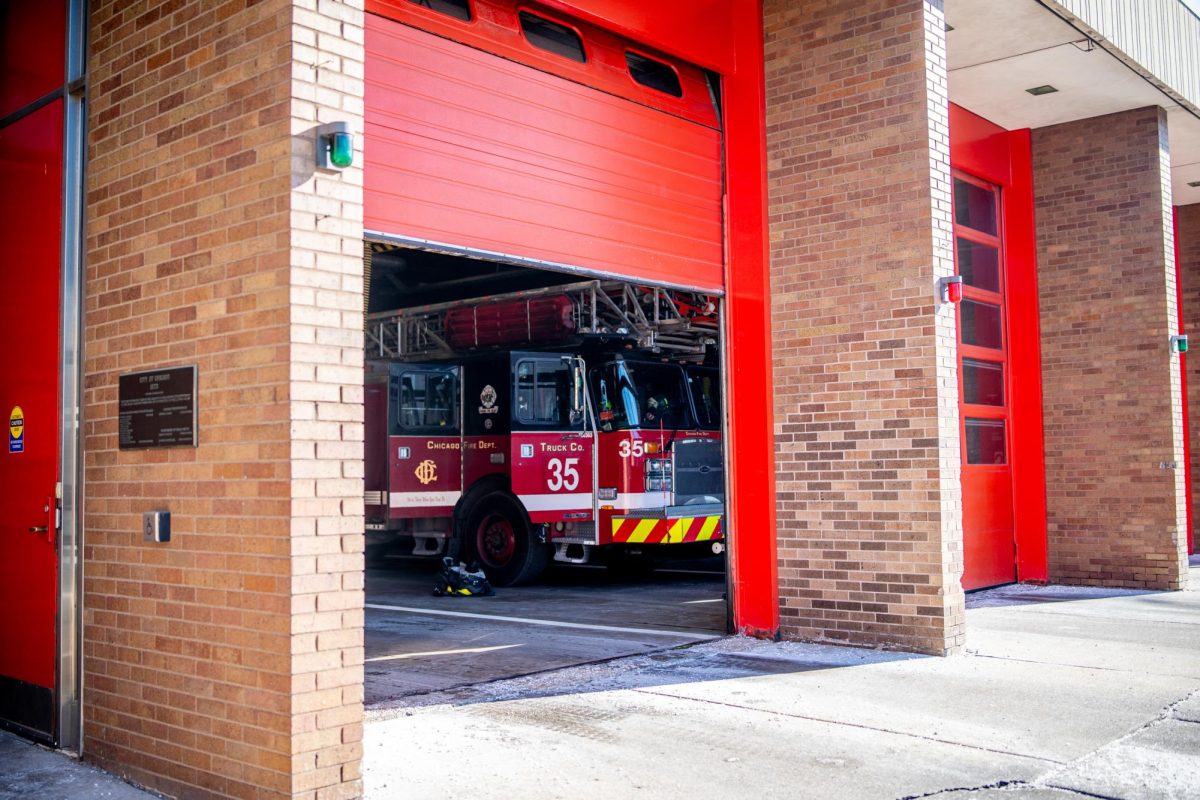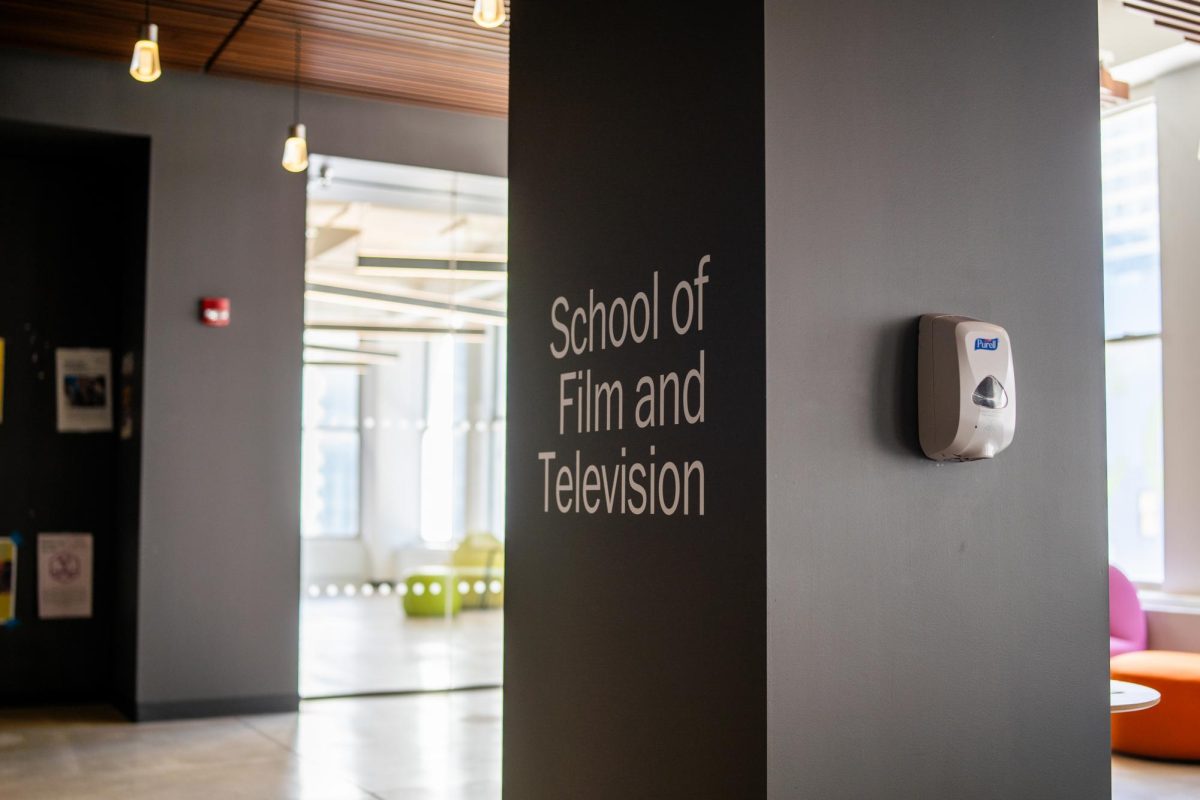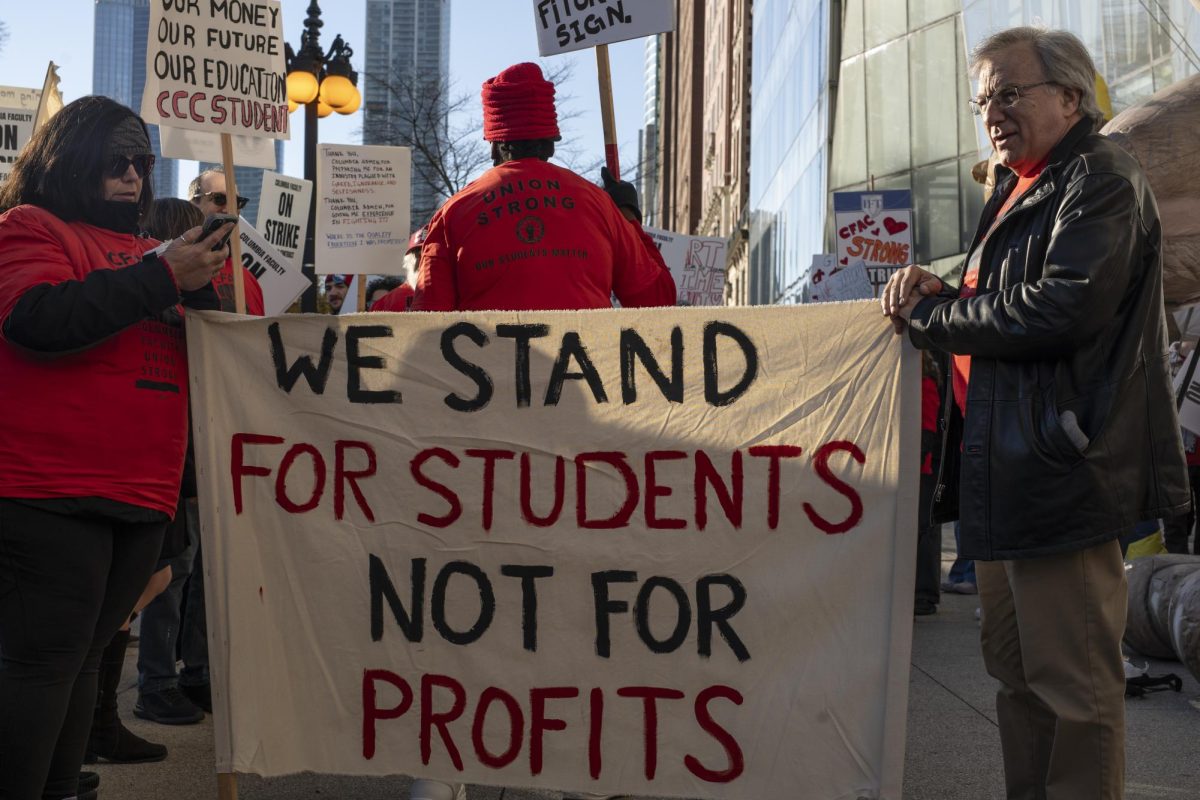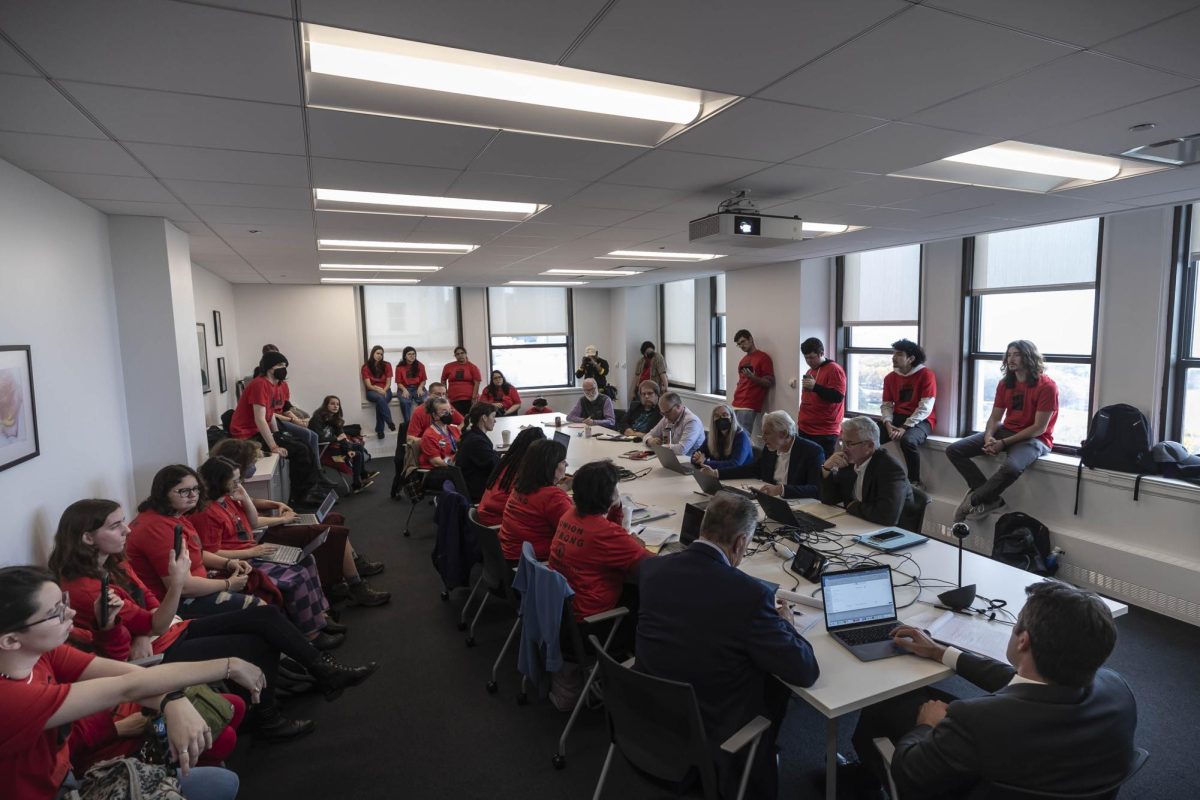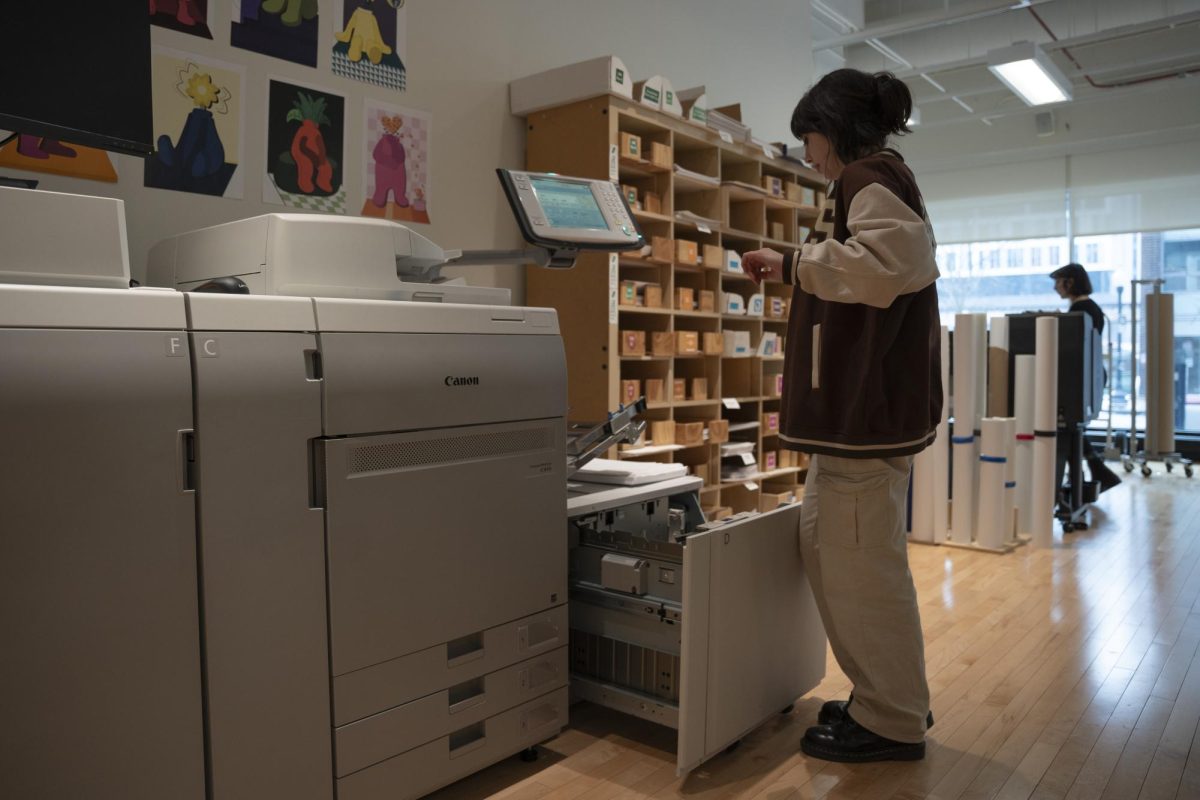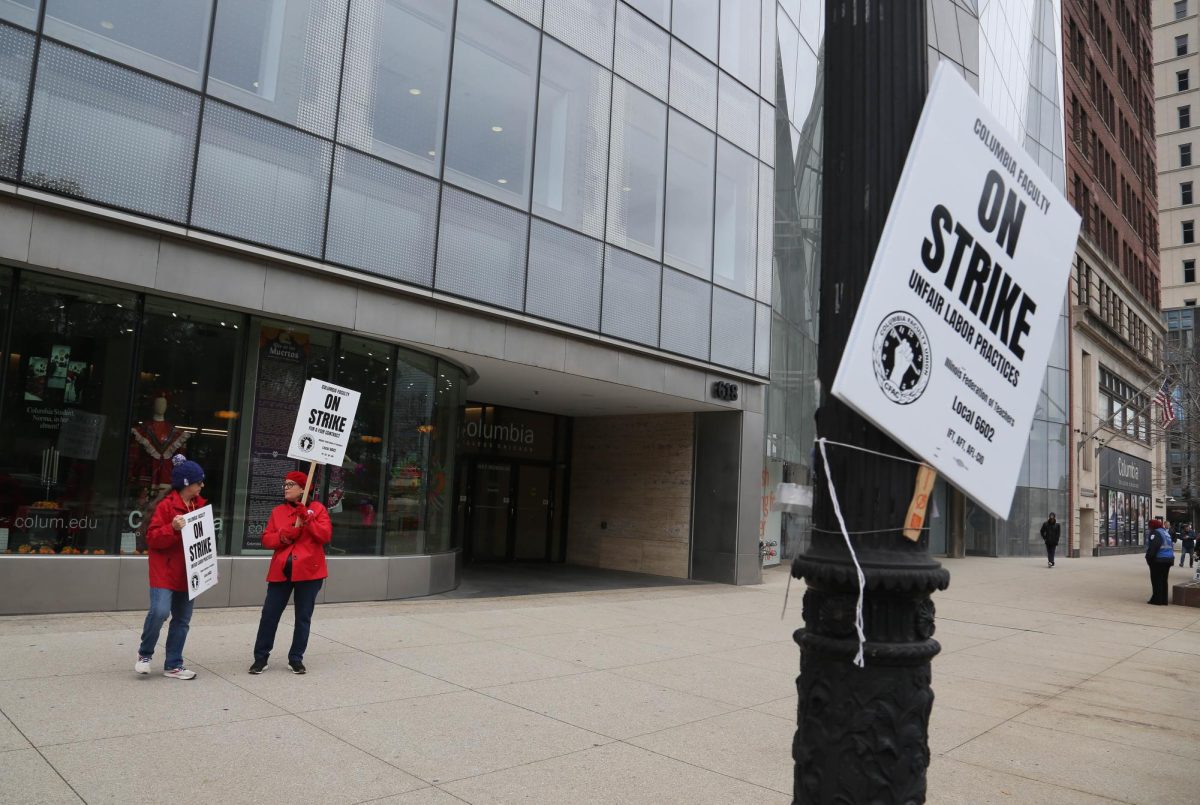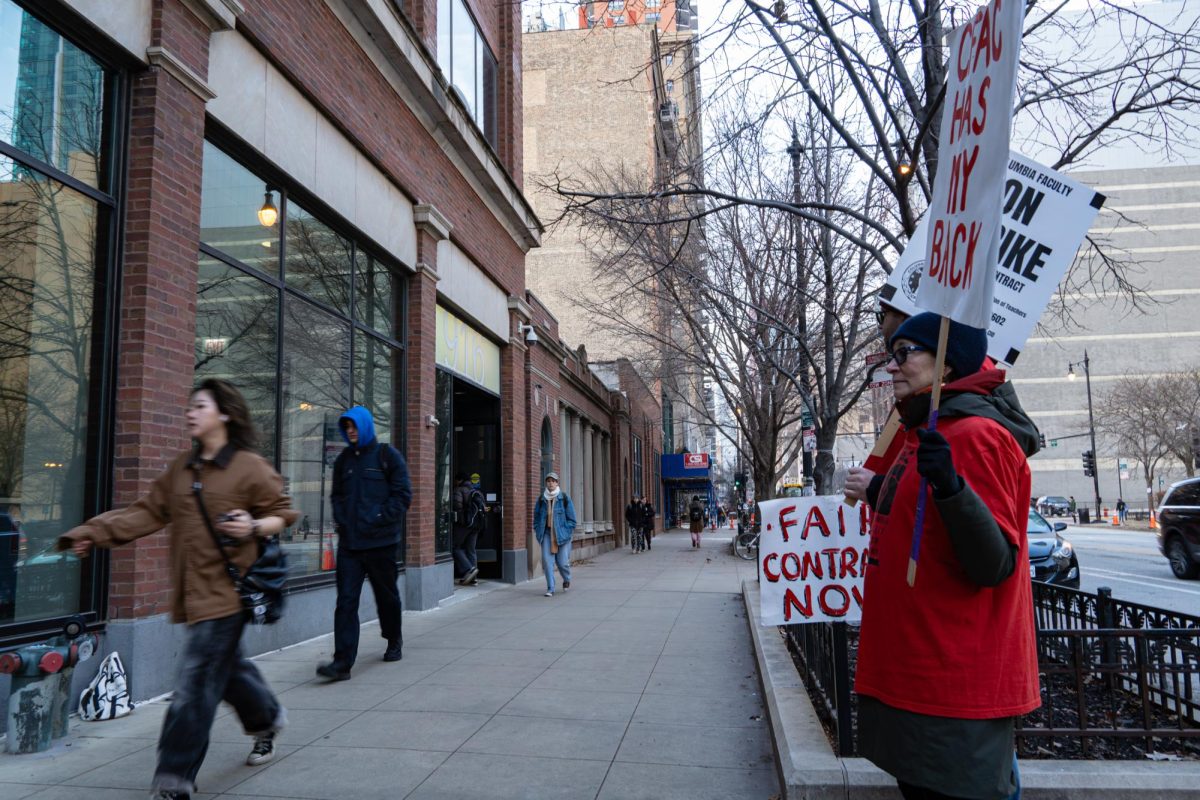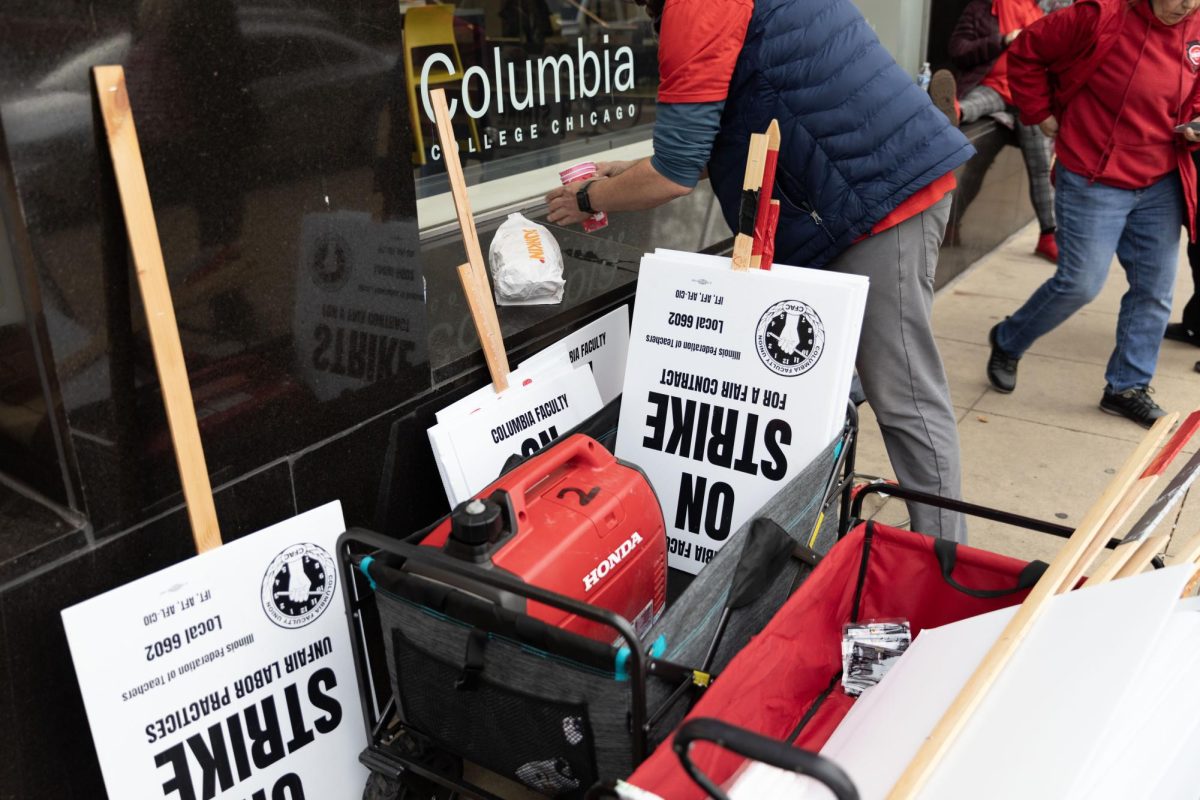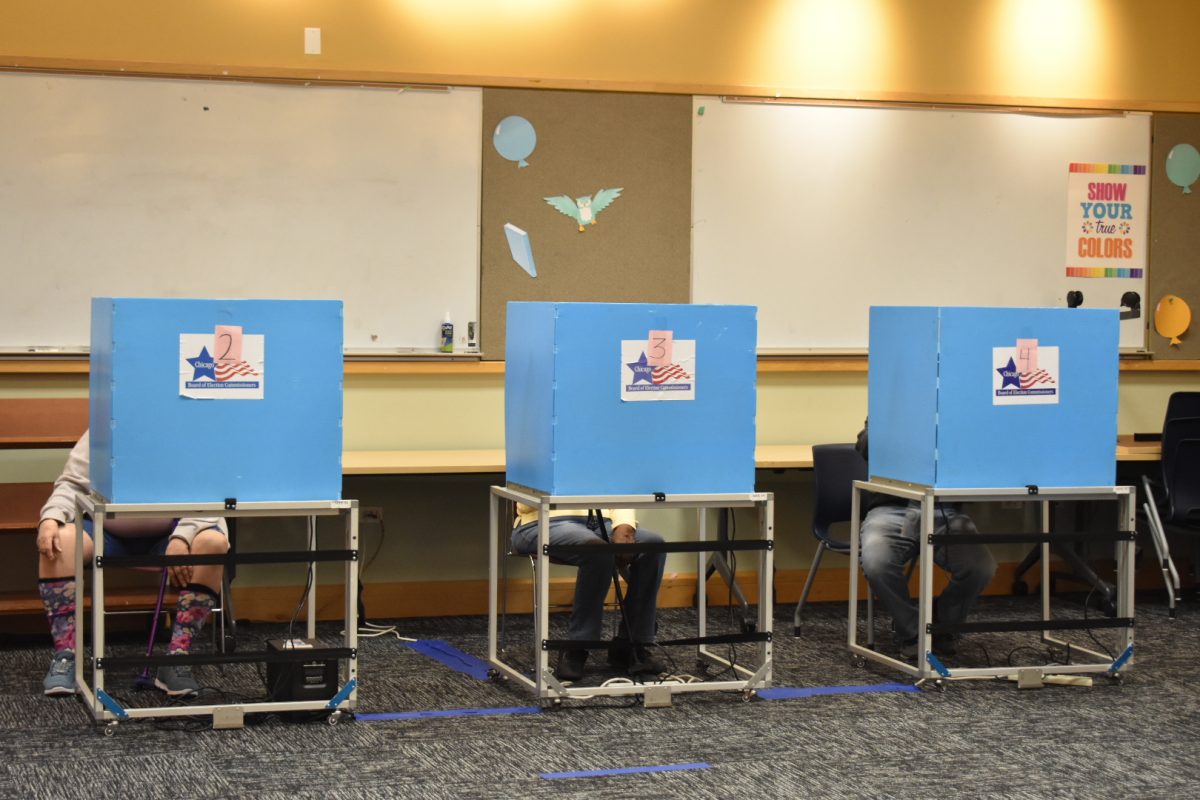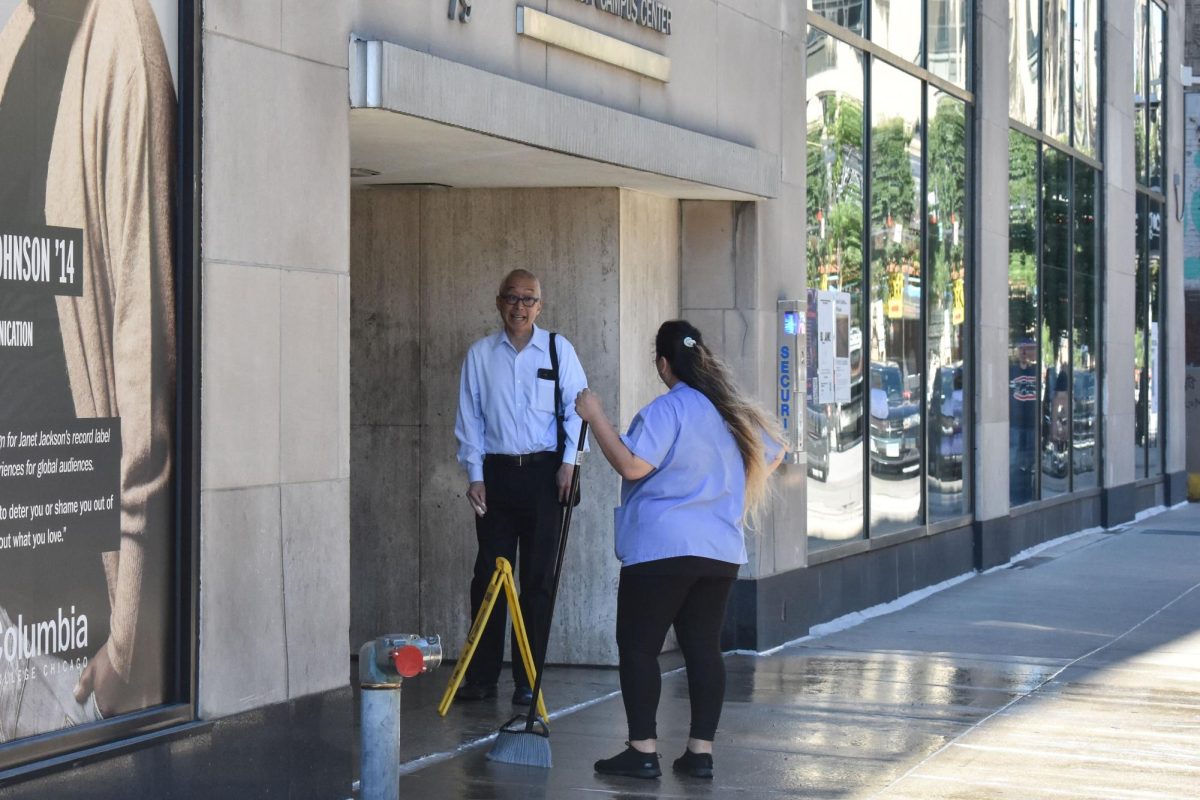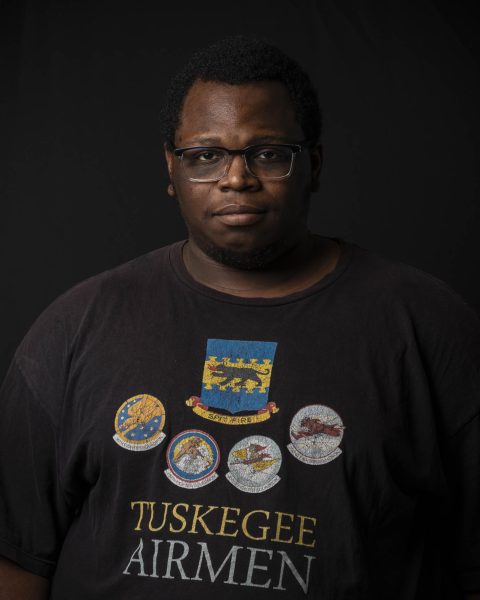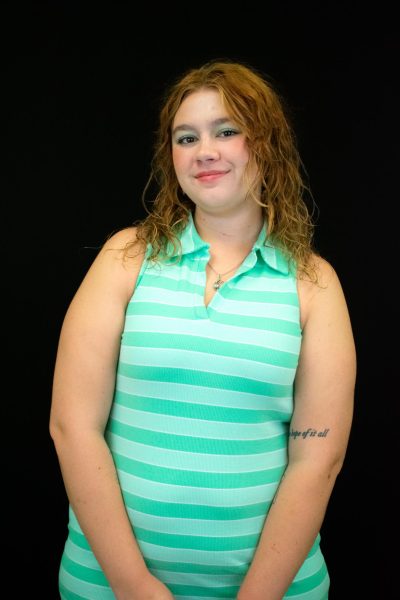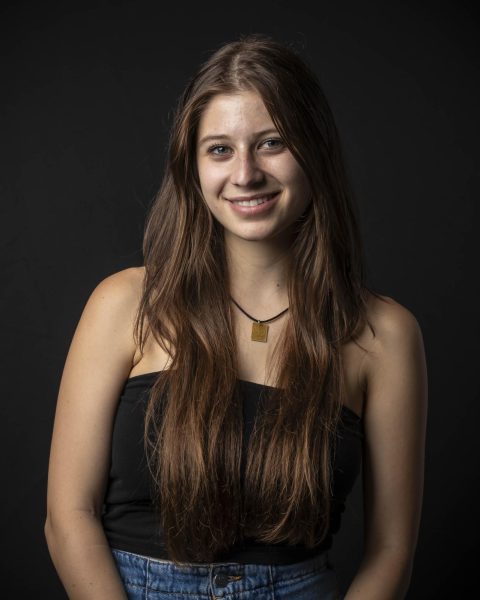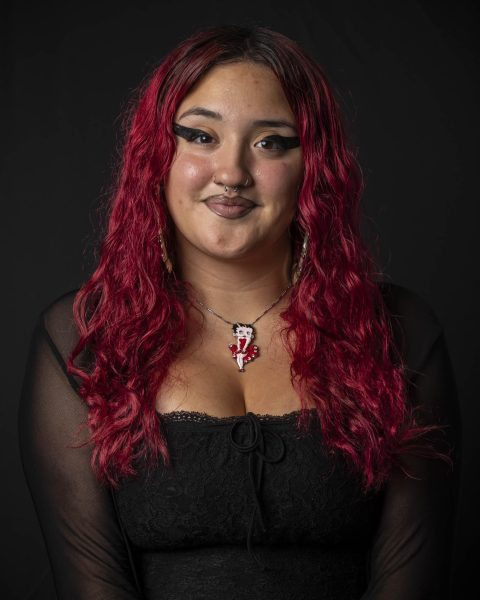Students will have the option to take any fall semester course pass/fail because of the three-week-old strike, but will be responsible for attending even if their striking part-time instructor is replaced by a full-time faculty member, Columbia President and CEO Kwang-Wu Kim said.
In an email sent Saturday morning, Nov. 18, Kim also said the college is considering tuition credit “in some instances” in response to inquiries from students and parents.
Hundreds of classes each day have not met during the strike by the Columbia Faculty Union, which represented 584 part-time instructors at the start of the fall semester. Some part-time instructors have resigned from the union since the start of the strike on Oct. 30.
The majority of classes at Columbia are taught by part-time instructors, and the college is now asking the college’s 221 full-time faculty to step in and teach to help students finish the semester.
Susan Kerns, associate provost for Faculty Research and Development, said all replacements are being carefully considered. Full-time faculty are only stepping into classes they are qualified to teach and feel confident teaching on very short notice, she said.
“Our full-time faculty are experts in, and keep current with, their fields, giving them a depth of knowledge suitable for teaching a variety of courses,” Kerns told the Chronicle in an email. “Most also teach a substantial roster of courses, even if not every semester, which is why full-time faculty have course materials ready to go. Additionally, in many cases full-time faculty design the courses that part-time instructors teach, especially at the foundational level and for multi-section classes.”
The new instructors will assess what work students have done to date and look at how the learning outcomes of the course can be achieved in the remaining weeks, Kim said. Whether students have met these outcomes is how course credit is determined by the Higher Learning Commission, which gives the college its accreditation.
Replacement faculty, including department chairs and staff assigned to the course, will be tasked with giving final grades and assigning pass/fail if students elect that option. If students do not return to class, that will be reflected in their final grade.
“Provisions for the awarding of grades and credit will take different forms depending on the course,” Kim said. “In some instances, a new instructor may take up teaching the class outright. In others, learning outcomes may be achieved through modes of instruction and assignments that differ from those initially planned for the course.”
Senior Associate Provost Nate Bakkum told the Chronicle that replacement faculty will be responsible only for entering final grades for the courses to which they are assigned. “They are not expected to re-assess work that was already graded in the first part of the semester,” he said.
Part-time instructors who continued to teach during the strike or who have opted to return to the classroom will not be replaced, according to the provost’s office.
The college also has said it will not force full-time faculty to teach for striking part-time instructors, which adds to their workload.
The plans for how the remainder of the semester will work were made by the provost’s office and in consultation with the Faculty Senate, the elected body that represents full-time faculty.
What faculty are saying: Madhurima Chakraborty, president of Faculty Senate said all the full-time faculty she knows are “emotionally wrought” about having to choose in this “impossible situation.”
“We do not want the college to be at this crossroads, and, most importantly, we’ve had no choice in it coming to this,” Chakraborty said to the Chronicle in an email. “Even the choices we have been given at this point seem pyrrhic: they’ve been framed as ones between our college, our colleagues, and our students, as though the interests of the three are opposed instead of connected.”
Chakraborty said quite a few full-time faculty are stepping in for students when asked, but that the workload for the faculty is not sustainable.
“Full-time faculty started this semester with plenty of tough conversations in front of us – about increasing workload, increasing course caps, curricular changes – and these concerns absolutely continue to need attention and solutions,” Chakraborty said. “Instead of being able to direct time and energy towards collaborative and creative answers that move our college forward, full-time faculty, regardless of what choice they’re given or make, will now be spending the last few weeks of the semester in extended, heightened work in crisis mode. We do this for our students, but it is not sustainable.”
What students are saying: Nicole Stocks, a sophomore acting major, said she will not attend class taught by a substitute. She said Kim’s email felt like a “threat.”
“I feel backed up against the wall because Columbia is one of the only institutions offering a program that works for me and what I want to do,” she said. “This is no longer an ultimatum, but an institution forcing students to comply at the risk of tens of thousands of their dollars. But I will not comply because the teachers of this institution are the reason Columbia is so great.”
Brita Lundberg, a senior photography major, said she was frustrated by the president’s email, which blamed “the fact we aren’t back in classes on the union when they are the ones not wanting to bargain.”
The college and union dispute which side is not bargaining. The college has called in a federal mediator, and the union has asked Chicago Mayor Brandon Johnson to help. Johnson was employed by the Chicago Teachers Union before he became mayor and has issued a statement in support of the union.
In an Instagram post on Friday, Nov. 17 from an account used by CFAC, Union President Diana Vallera, a part-time photography instructor, said instructors had been “locked out” of Canvas at around 10 p.m. “We can no longer access our courses, which are our intellectual property, nor can we communicate with our students to offer any guidance or reassurance,” according to the post.
Some part-time faculty have not been communicating with students since the strike.
Kim said in the email that the process of replacing instructors will happen over the next week.
He also said students are getting incorrect information from some part-time instructors.
“We are aware of instances where faculty are informing students that courses are being cancelled for the semester, even though faculty cannot cancel courses, only the college can,” he said.
The Chronicle has reviewed dozens of messages from part-time instructors, the majority sent as the strike started.
The last Canvas message sent to the class, which was dated Oct. 31, anticipated that striking instructors might be replaced.
“I also wanted to mention that the part-time faculty union has informed us that the college may offer classes, during the strike, which will be taught by other teachers,” the instructor wrote. “Whether or not you choose to attend these classes, or support the strike, is entirely up to you. Do what’s best for you and your academic progress.”
Lundberg objected to removing part-time instructors from courses and said “replacing them like they don’t even matter really shows what the administration is willing to do.”
Sofia Wheelock, a sophomore creative writing major, called the plans for the remainder of the semester “ridiculous.”
“I think that the next steps are unfair to the adjunct faculty,” she said. “It sounds like he’s gonna fire and replace all of these people saying ‘we remain unable to reach an agreement.’”
When asked about the email detailing plans for the remainder of the semester, Marcelina Perez, a sophomore interior architecture major, said she felt “frustrated.”
“A lot of my courses were canceled like digital media, and it’s frustrating because I am behind compared to people who are in the same major as me who go to SAIC or other school nearby,” she said, referring to the School of the Art Institute.
Junior Claudette Harris, an illustration major, has not been to class since the strike started because they have all part-time professors.
“It really sucks because my teachers are so understanding, helpful, and overall nice people,” Harris said. “I also miss the class environment, just being able to see and talk to other classmates. I feel like I’ve lost most of the semester.”
Additional reporting by Emily Ramirez.



